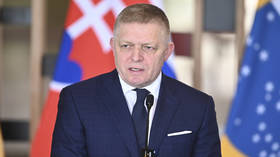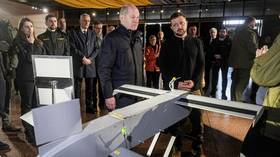Demand outstrips supply of Russian turbines
Russia's power generator OGK-1 will spend about $US 150 million on two turbines from Siemens. In addition, Russian generators plan to pump a total of $US 32 billion into new capacity by 2010. Almost half the money may go abroad, as domestic equipment make
Siemens will supply OGK-1 with gas and steam turbines with a total capacity of 850 megawatts.
Other turbine purchases are in the pipeline with OGK-1 choosing between Siemens and General Electrics.
The power generator says that when it comes to hi-tech fuel-saving equipment, Russian producers can't compete with foreign firms.
Russian manufacturers may meet up to 60 per cent of demand, particularly for small capacity turbines, but, as for the rest, they'll to be bought from abroad.
With growing demand from other markets like China and India, Russian generating companies have to take their place in a long queue to get the necessary equipment from foreign producers.
“A lot of generators reserve the production capacities of foreign turbine producers. One of the largest regional generating companies, Mosenergo, paid $US 54 million to book its capacity plus a $US 500 million contract for the actual purchase of the equipment,” says analyst Igor Kraevsky.
If the generators don't get the equipment they need in time, they may simply fail to introduce new capacity as planned in the investment programme – a delay that may be expensive for the fast- growing Russian economy.












